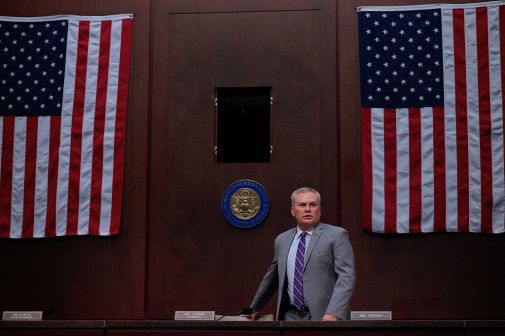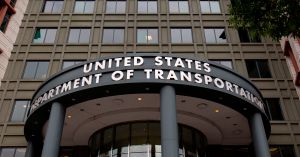DOT needs engineers’ help with automated vehicle policy
Transportation Department Chief Innovation Officer Chris Gerdes made an appeal Wednesday for engineers, developers and computer scientists to get involved in automated vehicle policy development.
Gerdes, a mechanical engineering professor on leave from Stanford University, said one thing he’s taken away from his experience in government is “how much engineers actually can influence policy if they take advantage of opportunities such as public comment or even to meet with people in the government and give good technical information.”
“I think when good technical information is available in policy decisions, it gets used,” he said Wednesday at NVIDIA’s GPU Technology Conference. “And that’s tremendously heartening, but I think it also puts the onus on all of us who are engineers and developers and computer scientists to engage with the process, to find out where this is going. Because there is a lot of opportunity to help shape that.”
During his remarks Gerdes set forth some of his main concerns in the development of autonomous vehicles — in particular, how do you balance the ideas of programming the vehicle to follow certain rules with a deep learning approach or driving closer to the way humans drive?
As an example, Gerdes explained how you could hardcode a car to only drive at the speed limit, allow it to learn how to drive from humans who sometimes speed or develop some combination of the two.
“I think there’s limits to any of these approaches in the real extremes. You can’t really conceivably think of hardcoding every situation that a car would encounter, and you also don’t necessarily want to simply learn from human drivers,” Gerdes said. “Human drivers make errors, and if you use them as your only source of learning for an automated vehicle you’re going to inherit those same sources of errors.”
Gerdes said the balance between rule-based techniques and machine learning “seems like an area that is still open in many ways.”
“How do you combine and how do you balance these things? That’s a fairly sophisticated problem, and I think with the automated vehicle guidance, what you see is a desire to have a fairly sophisticated conversation,” he said.
In particular, Gerdes called on interested people to give feedback on some aspects of the department’s recently released automated vehicle policy, like data sharing.
[Read more: Administration asserts role in regulating autonomous vehicles]
In particular, he noted the policy’s mention of data sharing among automakers is “obviously a topic which is going to require a lot of comment and a lot discussion because there are many other considerations here.”
“Clearly companies that are developing these systems don’t want to share all of their data because they don’t want to give away what they’re doing for proprietary reasons. Similarly customers may be reticent to share their data for privacy reasons,” Gerdes noted. “The trick is to find where is this common area.”
He noted airlines have already figured out an information-sharing system that works for them.
“This system can’t be exactly cut and paste on to automated vehicles but I think there’s a sweet spot there,” he said.
He noted the DOT is “looking to do some prototypes in the coming months to try to start small to see what kind of data can be shared and to follow the example of the aviation industry to kind of start from that and build trust and move out.”






